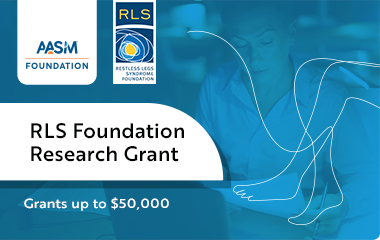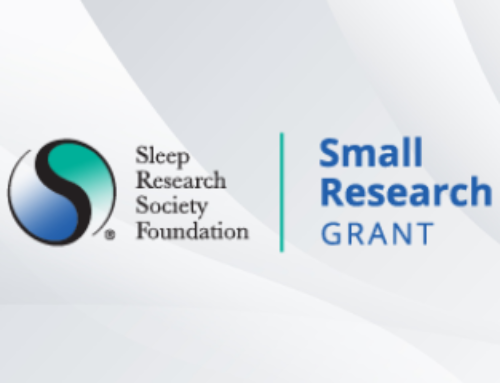The American Academy of Sleep Medicine Foundation (AASM Foundation) and the Restless Legs Syndrome (RLS) Foundation are delighted to announce the recipients of the 2025 RLS research grant awards. These grants support innovative scientific studies aimed at advancing understanding, diagnosis and treatment of restless legs syndrome. This year, two research projects were co-funded by the RLS Foundation and the AASM Foundation.
“The AASM Foundation is proud to partner with the RLS Foundation to fund high-impact research that addresses critical gaps in our understanding of restless legs syndrome,” said Dr. Lynn Marie Trotti, President of the AASM Foundation. “These innovative projects have the potential to advance scientific knowledge and improve the quality of life for individuals living with RLS, and we are excited to support the investigators driving this important work forward.”
Restless legs syndrome is a neurological sleep disorder that causes you to have uncomfortable feelings and the urge to move your legs. Restless legs syndrome makes it difficult to get comfortable enough to fall asleep. The symptoms are usually worse in the evening and at night.
Please join us in congratulating the 2025 grant recipients!
 Dr. Emmanual Mignot and Dr. Katie Cederberg (Stanford University)
Dr. Emmanual Mignot and Dr. Katie Cederberg (Stanford University)
Proteomic approach to understanding the mechanism of action for exercise as a non-pharmacological management method in RLS. A pilot study.
This study will explore how different types of exercise influence restless legs syndrome (RLS) symptoms and uncover the biological pathways involved. Using blood samples from an ongoing clinical trial, the team will measure changes in thousands of proteins before and after a 12-week exercise program. By identifying proteomic biomarkers linked to symptom improvement or worsening, they aim to reveal how exercise affects RLS at a molecular level. Findings from this pilot study may inform more effective, personalized treatment strategies for people living with RLS.
 Dr. Kondaiah Palsa (Penn State University)
Dr. Kondaiah Palsa (Penn State University)
Defective transferrin receptor regulation in the blood-brain barrier endothelial cells underlies brain iron insufficiency in RLS.
This study will use a blood-brain barrier (BBB) cell culture model and cerebrospinal fluid (CSF) from individuals with RLS to investigate whether signals in the CSF disrupt the regulation of transferrin receptors, which are key proteins that transport iron into the brain. Despite normal blood iron levels, individuals with RLS often have reduced brain iron, which may be due to impaired iron uptake at the BBB. This project aims to identify how iron transport becomes dysregulated and to uncover molecular pathways that could be targeted to restore brain iron levels and relieve RLS symptoms.
About the AASM Foundation
The AASM Foundation is the official philanthropy of the American Academy of Sleep Medicine. Our values, programs, and purpose are focused on investing in people, research, and communities to improve the sleep health of all people.
About the Restless Legs Syndrome Foundation
The RLS Foundation is dedicated to improving the lives of the millions who live with restless legs syndrome. Founded in 1989, the Foundation’s goals are to increase awareness, improve treatments and advance research for a cure. The Foundation serves healthcare providers, researchers, 6,000 members and an estimated 12 million individuals (10 million adults and 1.5 million children) in the US who have RLS.






